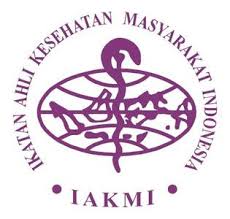Peran Puskesmas dalam Melaksanakan Program Sanitasi Pilar Stop Buang Air Besar Sembarangan
Abstract
ABSTRAK
Pada tahun 2014 sampai 2017 dari kelima desa/kelurahan yang ada dalam wilayah kerja Puskesmas Leyangan belum satupun yang melaksanakan desa Stop BABS (SBS).Tujuan penelitian ini adalah untuk menganalisis peran Puskemas Leyangan terhadap pelaksanaan program STBM pilar Stop BABS.
Jenis penelitian ini deskriptif dengan pendekatan kualitatif. Rancangan penelitian menggunakan studi kasus dengan fokus penelitian pada peran pasif dan aktif Puskesmas Leyangan terhadap pelaksanaan STBM pilar Stop BABS. Data penelitian dikumpulkan melalui wawancara mendalam. Informan dipilih secara purposive sesuai kebutuhan penelitian. Data disajikan melalui uraian singkat (narasi).
Hasil penelitian menunjukkan bahwa pada peran pasif Puskesmas terdapat hal-hal yang belum dilaksanakan Puskesmas, diantaranya tenaga kesehatan tim STBM belum pernah mengikuti pelatihan, kurangnya pendanaan untuk pengadaan jamban, Puskesmas tidak melakukan penetapan target khusus, dan penyusunan perencanaan terkait teknis pelaksanaan STBM Pilar Stop BABS. Sedangkan pada pelaksanaan pemicuan program masih rendahnya kesadaran warga untuk buang air besar di jamban. Hal ini membuat capaian program belum sesuai target ODF 100%, masih terdapat desa yang persentasenya masih 35% yaitu Desa Kalirejo.
Saran penelitian ini yaitu pihak dinas kesehatan sebaiknya lebih mengupayakan agar anggaran program STBM lebih di utamakan, dan pihak Puskesmas Leyangan perlu meningkatkan penyuluhan yang terfokus pada peningkatan pemanfaatan dan pemeliharaan jamban.
ABSTRACT
In 2014 to 2017, out of the five villages in the working area of Leyangan Health Center, none of them implemented a Stop BABS’s Village. The purpose of this study was to analyze the role of the Leyangan Health Center in implementing the STBM Programs pillar Stop BABS.
This type of research is descriptive with a qualitative approach. The research design uses a case study with a research focus on the passive and active role of the Leyangan Health Center in the implementation of STBM pillars Stop BABS. Research data were collected through in-depth interviews. Informants were selected purposively according to research needs. Data is presented through a brief description (narration).
The results showed that in the passive role of Leyangan Community Health Center there were things that had not been implemented by the Health Center, including the health staff of the STBM team who had never attended training, lack of funding for latrine procurement, the Health Center did not set specific targets, and the preparation of plans related to the technical implementation of the Pillar Stop STBM. BABS. While in the implementation of the STBM triggering program, the awareness of residents to defecate in the toilet was still low. This makes the program achievements in Leyangan Health Center not reach 100% ODF target, there are still villages with a percentage of 35%, namely Kalirejo Village.The suggestion of the research is that the health department should strive to prioritize the STBM program budget to be prioritized, and the Leyangan Health Center should increase counseling focused on increasing the use and maintenance of latrines.




